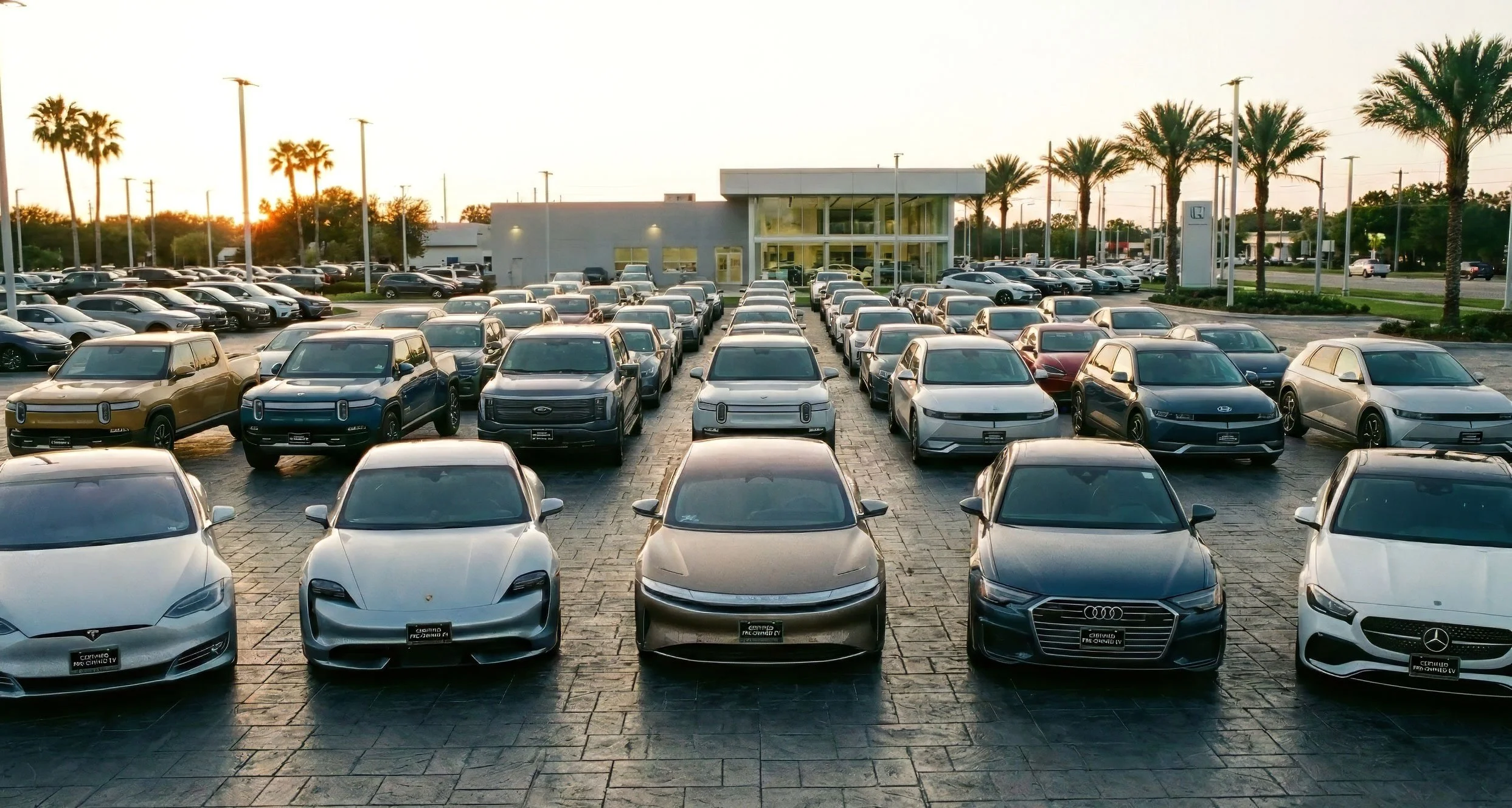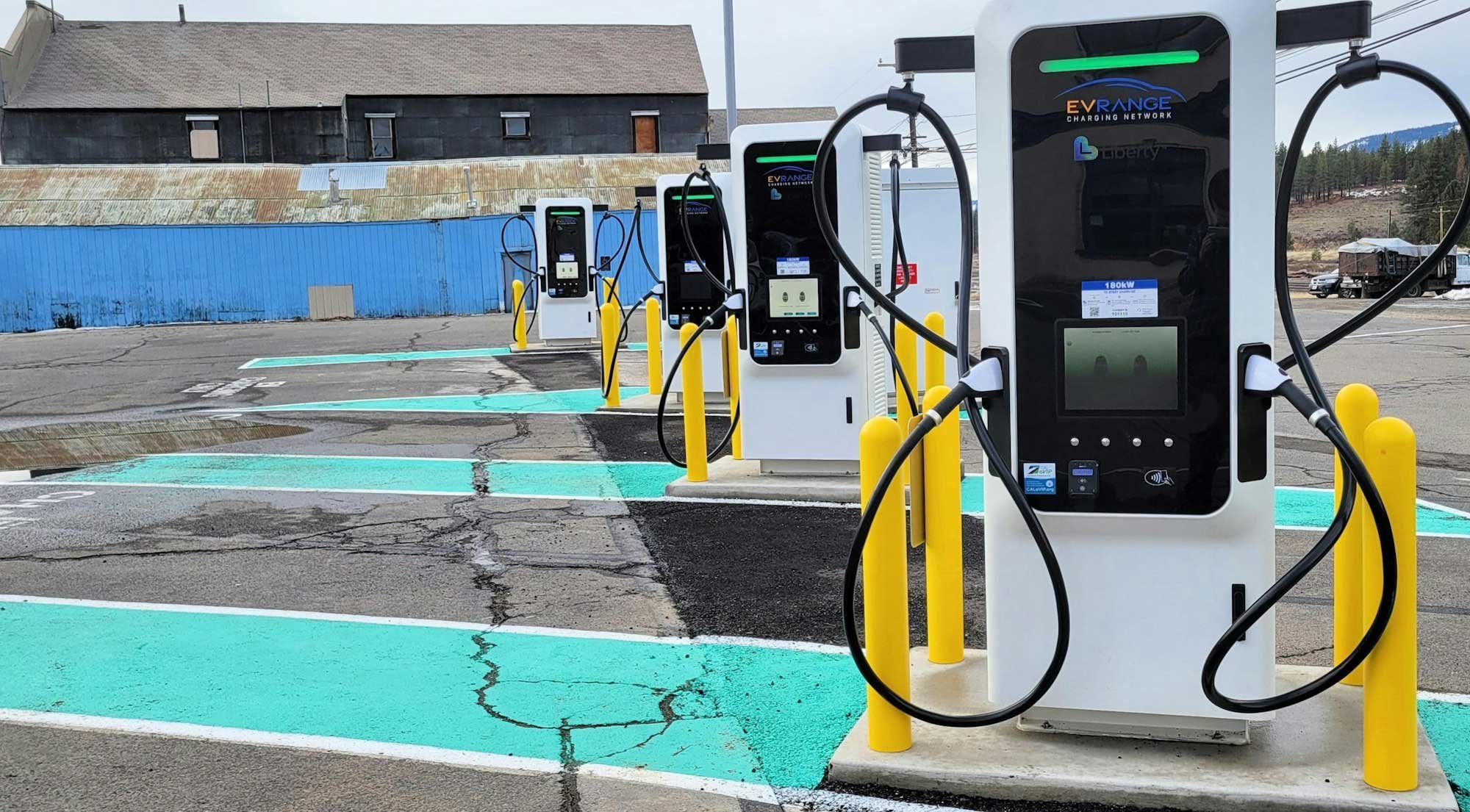Millions in Funding Available Now: Why Property Owners in Ca, Tx, Co, and AZ Should Act Fast on DC Fast Charging
Electric vehicle adoption is still accelerating, and for commercial property owners, this represents a significant new revenue stream. Whether you own retail space, hospitality properties, convenience stores, or commercial real estate, demand for reliable EV charging is surging.
Right now, tens of millions of dollars in state and federal funding are available to help you install DC fast charging infrastructure. These programs are designed to make installation affordable and highly profitable.
But navigating this landscape is complex, and the funding is often first-come, first-served. This guide simplifies the opportunity for property owners in California, Texas, Colorado, and Arizona.
What is DC Fast Charging and Why Does It Matter for Your Property?
The key differentiator for DC fast charging is how it delivers power. Unlike Level 2 (AC) chargers that rely on a vehicle's slow onboard converter (typically 7-19 kW), DC fast chargers contain their own high-power AC-to-DC converters.
This allows them to bypass the vehicle's internal limitations and deliver high-voltage DC power directly to the battery pack to deliver anywhere from 50 kW to 350+ kW.
The result is a game-changer for charge times. Instead of the several hours required by a Level 2 station, a DC fast charger can deliver an 80% charge in just 20-30 minutes. This speed and convenience are non-negotiable for drivers on the go, making DC fast charging the essential infrastructure for retail centers, convenience stores, travel plazas, and highway corridors.
The Business Case is Clear. Installing DC fast chargers:
Attracts High-Value Customers: EV drivers are a rapidly growing, tech-savvy demographic with high disposable income. They actively seek out properties that offer reliable charging.
Increases Dwell Time & Spending: While charging, drivers spend 20-30 minutes at your property, significantly increasing the likelihood of in-store purchases.
Creates a New, Direct Revenue Stream: You can sell electricity for a profit, creating a new, reliable source of income.
Future-Proofs Your Asset: EV charging is quickly moving from a "nice-to-have" amenity to a "must-have" utility. Installing it now increases your property's marketability.
The Market is at a Tipping Point
This demand isn't just from early adopters. With over 298,000 battery-electric vehicles sold in the U.S. in Q1 2024 alone, adoption is going mainstream.
More importantly, the used EV market is booming. As high-quality, three-year-old leases enter the secondhand market, affordable models are bringing millions of new drivers onto the road. This mainstream surge means demand for public fast charging will be a necessity for every parking lot.
2024-2025 Grant & Incentive Opportunities (CA, TX, CO, AZ)
This is the time to act. States are using federal and local funds to build out their charging networks, and property owners are the primary beneficiaries. Here is a snapshot of what’s available right now.
(Note: Program funds are limited and application windows close quickly. Contact us for the most current status.)
California
NEVI Program: The federal National Electric Vehicle Infrastructure (NEVI) program is actively funding high-speed chargers along designated highway corridors.
Local Air Districts (AQMDs): Many local districts (like the South Coast AQMD and Bay Area AQMD) offer $4,000 to $50,000 per charger. Many programs are open now or operate on a rolling basis.
San Diego County (CALeVIP): Rebates range from $50,000 to $80,000 per DC Fast Charger.
Communities in Charge: This $50+ million program provides significant funding for chargers at multifamily and community locations. New funding rounds are announced periodically.
Sacramento Metro AQMD: Offers infrastructure incentives of up to 100% of project costs.
Texas
NEVI Program: Texas has been allocated $408 million over five years. The state is actively soliciting proposals for its highway corridor build-out.
Utility Rebates:
Austin Energy: Offers up to $5,000 per DC fast charger.
CPS Energy: Provides grants up to $2,500.
Entergy Texas: Offers commercial installation rebates.
Colorado
NEVI Program: Colorado is unlocking millions in NEVI funding, with new application rounds for highway corridors opening this year.
Charge Ahead Colorado: This popular state program offers up to $250,000 per awardee for commercial chargers and up to $500,000 for multifamily properties. Applications are often accepted on a rolling basis.
Utility Programs: Xcel Energy and other local utilities offer additional rebates for make-ready infrastructure.
Arizona
NEVI Program: Arizona has $76.5 million in committed NEVI funds to build out charging stations. New solicitations are expected soon.
Maricopa County Grant: A $15 million federal grant reimburses up to 80% of installation costs for public charging at eligible sites.
Utility Rebates:
Salt River Project (SRP): Offers up to $20,000 per port, with a $300,000 annual cap per customer (program deadlines are typically in the spring).
Tucson Electric Power (TEP): Provides up to $20,500 per port.
UNS Electric: Offers up to $12,000 per DC fast charger.
Don't Wait, The Funding is Limited
These grant programs operate on tight timelines and limited budgets. The property owners who move first will secure the highest incentives and the strongest position in this rapidly growing market.
At EV Range, we are experts in simplifying this process. We provide a turnkey solution and act as your dedicated partner. Our team manages the entire process—from grant application and site design to installation and network management.
Whether you want to own your stations for maximum profit or prefer a zero-cost, revenue-sharing host agreement, we're here to make the process simple, transparent, and profitable.
Contact EV Range today to get started
Sources & Further Reading
Cox Automotive. (2024). Q1 2024 Cox Automotive EV Sales Report.
Cox Automotive. (2024). EV Market Monitor (Used EV Market Update).
California Air Resources Board (CARB). (2024). California Climate Investments Program.
Texas Department of Transportation (TxDOT). (2024). Texas Electric Vehicle Infrastructure Plan.
Colorado Energy Office (CEO). (2024). Charge Ahead Colorado Program.
Arizona Department of Transportation (ADOT). (2024). NEVI Program Update.
Salt River Project (SRP). (2024). Business EV Charging Rebates.
Tucson Electric Power (TEP). (2024). TEP Commercial EV Charging Program.







